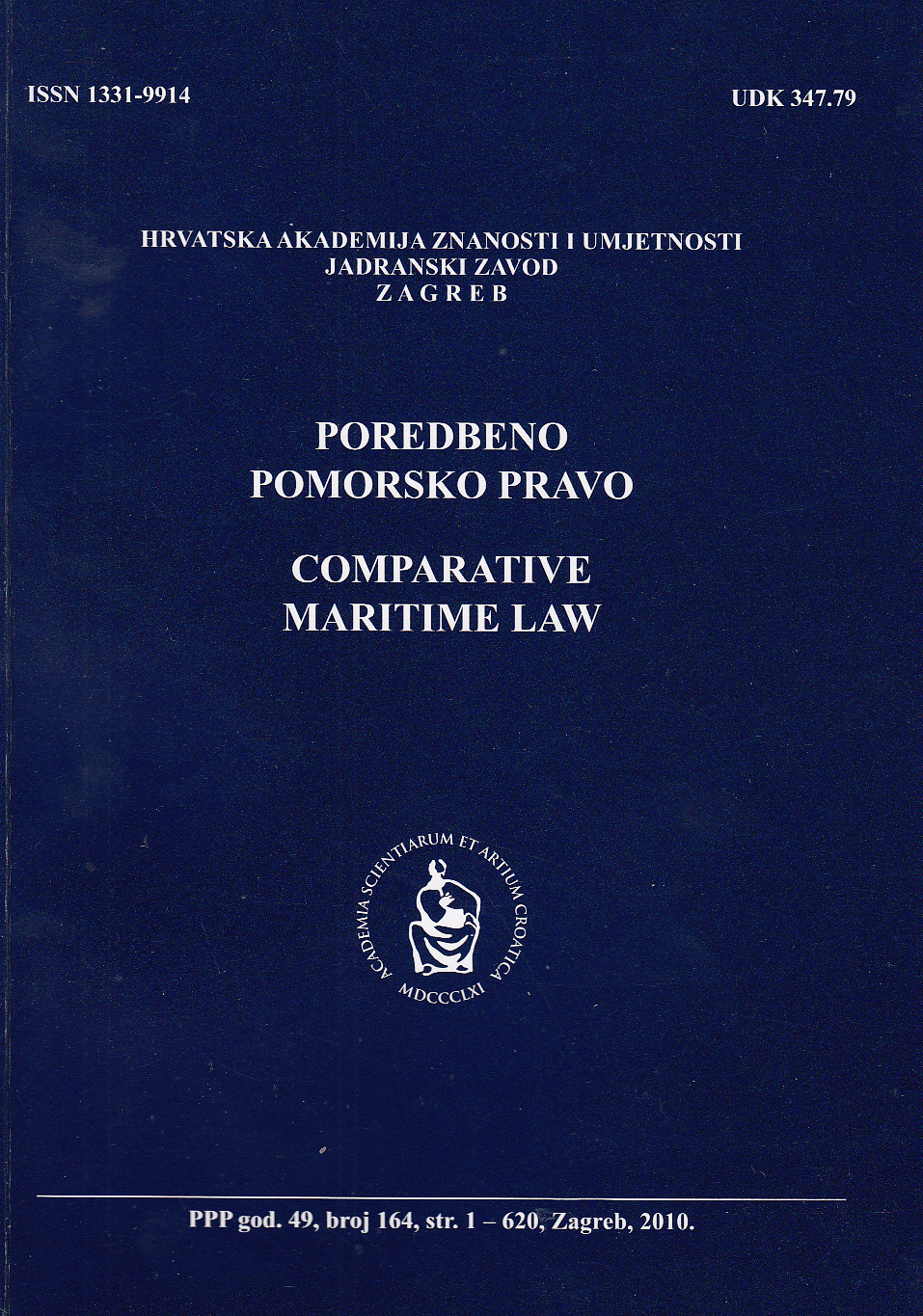Konvencija UNESCO-a o zaštiti podvodne kulturne baštine i jurisdikcija država u Jadranskome moru
The UNESCO Convention on the protection of the underwater cultural heritage and State jurisdiction in the Adriatic Sea
Author(s): Trpimir M. ŠošićSubject(s): International Law, Environmental interactions, Maritime Law
Published by: Hrvatska akademija znanosti i umjetnosti
Keywords: underwater cultural heritage;State jurisdiction;Adriatic Sea;UNESCO Convention on the Protection of the Underwater Cultural Heritage;UN Convention on the Law of the Sea;
Summary/Abstract: The Convention on the Protection of the Underwater Cultural Heritage, which was adopted by the General Conference of UNESCO in November 2001, and which entered into force only in January 2009 after a comparably long-lasting ratification process, is the first comprehensive international instrument in the field of underwater heritage protection. Croatia was the third country to ratify the Convention, which illustrates the importance Croatia ascribes to the protection of submerged cultural objects. This is not surprising, considering that the seabed extending in front of Croatia’s coast is abundant with significant archaeological sites. After explaining the Convention’s definition of the underwater cultural heritage and highlighting some of the more important general provisions of the Convention, the paper analyses in some detail the jurisdictional regimes provided for in the Convention as concerns the protection of cultural heritage in the various maritime zones, i.e. the marine spaces under State sovereignty, the contiguous zone, the exclusive economic zone and the continental shelf, as well as the Area. The author also considers the interrelation of the Underwater Heritage Convention with the relevant provisions of the UN Convention on the Law of the Sea. Based on the analysis of the 2001 UNESCO Convention’s provisions concerning State jurisdiction, the paper goes on to discuss the rules pertaining to jurisdiction in respect of underwater heritage protection, as contained in the municipal laws of some States bordering the Adriatic Sea. Accordingly, in the first place the relevant Croatian internal laws are observed, but, in as much as accessible, the respective legislation of Slovenia and Italy have also been taken into consideration. In the conclusion, it is submitted that Croatia should consider proclaiming a contiguous zone, in order to make full use of the jurisdictional rights confirmed and accorded to coastal States by the 2001 UNESCO Convention, and, thus, secure a more effective protection of archaeological sites beyond the territorial sea. The author further points out that, although the Croatian coast guard has been given general competence to control and protect cultural heritage sites in the Croatian ecological and fisheries protection zone, it remains unclear which Croatian State agency is actually competent to initiate and, as the case may be, to coordinate the consultation procedure with other State parties, provided for in the 2001 UNESCO Convention in relation to cultural objects in the exclusive economic zone and on the continental shelf.
Journal: Poredbeno pomorsko pravo
- Issue Year: 49/2010
- Issue No: 164
- Page Range: 101-138
- Page Count: 38
- Language: Croatian

